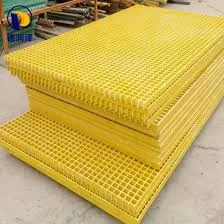
-
 Afrikaans
Afrikaans -
 Albanian
Albanian -
 Amharic
Amharic -
 Arabic
Arabic -
 Armenian
Armenian -
 Azerbaijani
Azerbaijani -
 Basque
Basque -
 Belarusian
Belarusian -
 Bengali
Bengali -
 Bosnian
Bosnian -
 Bulgarian
Bulgarian -
 Catalan
Catalan -
 Cebuano
Cebuano -
 China
China -
 China (Taiwan)
China (Taiwan) -
 Corsican
Corsican -
 Croatian
Croatian -
 Czech
Czech -
 Danish
Danish -
 Dutch
Dutch -
 English
English -
 Esperanto
Esperanto -
 Estonian
Estonian -
 Finnish
Finnish -
 French
French -
 Frisian
Frisian -
 Galician
Galician -
 Georgian
Georgian -
 German
German -
 Greek
Greek -
 Gujarati
Gujarati -
 Haitian Creole
Haitian Creole -
 hausa
hausa -
 hawaiian
hawaiian -
 Hebrew
Hebrew -
 Hindi
Hindi -
 Miao
Miao -
 Hungarian
Hungarian -
 Icelandic
Icelandic -
 igbo
igbo -
 Indonesian
Indonesian -
 irish
irish -
 Italian
Italian -
 Japanese
Japanese -
 Javanese
Javanese -
 Kannada
Kannada -
 kazakh
kazakh -
 Khmer
Khmer -
 Rwandese
Rwandese -
 Korean
Korean -
 Kurdish
Kurdish -
 Kyrgyz
Kyrgyz -
 Lao
Lao -
 Latin
Latin -
 Latvian
Latvian -
 Lithuanian
Lithuanian -
 Luxembourgish
Luxembourgish -
 Macedonian
Macedonian -
 Malgashi
Malgashi -
 Malay
Malay -
 Malayalam
Malayalam -
 Maltese
Maltese -
 Maori
Maori -
 Marathi
Marathi -
 Mongolian
Mongolian -
 Myanmar
Myanmar -
 Nepali
Nepali -
 Norwegian
Norwegian -
 Norwegian
Norwegian -
 Occitan
Occitan -
 Pashto
Pashto -
 Persian
Persian -
 Polish
Polish -
 Portuguese
Portuguese -
 Punjabi
Punjabi -
 Romanian
Romanian -
 Russian
Russian -
 Samoan
Samoan -
 Scottish Gaelic
Scottish Gaelic -
 Serbian
Serbian -
 Sesotho
Sesotho -
 Shona
Shona -
 Sindhi
Sindhi -
 Sinhala
Sinhala -
 Slovak
Slovak -
 Slovenian
Slovenian -
 Somali
Somali -
 Spanish
Spanish -
 Sundanese
Sundanese -
 Swahili
Swahili -
 Swedish
Swedish -
 Tagalog
Tagalog -
 Tajik
Tajik -
 Tamil
Tamil -
 Tatar
Tatar -
 Telugu
Telugu -
 Thai
Thai -
 Turkish
Turkish -
 Turkmen
Turkmen -
 Ukrainian
Ukrainian -
 Urdu
Urdu -
 Uighur
Uighur -
 Uzbek
Uzbek -
 Vietnamese
Vietnamese -
 Welsh
Welsh -
 Bantu
Bantu -
 Yiddish
Yiddish -
 Yoruba
Yoruba -
 Zulu
Zulu
'corrosion-resistant fiberglass for enduring durability.'
Corrosion-Resistant Fiberglass for Enduring Durability
In today’s ever-evolving industrial landscape, the demand for materials that can withstand harsh environments has never been greater. One such innovation that has gained remarkable popularity is corrosion-resistant fiberglass. This composite material is not just a substitute for traditional metals and plastics but a transformative solution that delivers enduring durability and performance across a myriad of applications.
Corrosion is a significant concern in industries such as construction, marine, and chemical processing, where exposure to moisture, chemicals, and environmental elements can lead to rapid degradation of materials. Metals, while strong, are particularly susceptible to rust and corrosion, resulting in costly repairs and replacements. This is where corrosion-resistant fiberglass comes into play, offering a blend of strength, lightweight characteristics, and enhanced longevity.
Fiberglass is composed of glass fibers embedded in a resin matrix, which can be tailored to enhance its resistance to various corrosive agents. Through meticulous engineering, manufacturers can design fiberglass composites that are not only resistant to environmental attack but also maintain structural integrity over extended periods. This performance can be significantly better than traditional metals and even some plastic materials when exposed to acids, bases, and saline environments. Such properties make corrosion-resistant fiberglass particularly advantageous in the maritime industry, where vessels are perpetually exposed to saltwater and humidity.
'corrosion-resistant fiberglass for enduring durability.'

Furthermore, one of the standout features of corrosion-resistant fiberglass is its versatility. It can be molded into a variety of shapes and components, making it ideal for applications ranging from piping systems and storage tanks to highly specialized components in aerospace and automotive sectors. Additionally, the lightweight nature of fiberglass contributes to ease of transportation and installation, thereby reducing labor and overall project costs.
One important aspect of corrosion-resistant fiberglass is its sustainability. As industries strive to lower their environmental impact, choosing materials that require less energy to produce and that offer longevity can make a significant difference. Fiberglass can be manufactured from recycled materials and, at the end of its life, can also be processed into new products, reducing landfill waste.
The applications of corrosion-resistant fiberglass are further enhanced by advancements in technology. Innovations such as hybrid laminates, which combine fiberglass with other materials, increase performance characteristics, opening doors to new applications that require superior strength and reduced weight. Moreover, ongoing research aims to develop even more resilient formulations that can withstand extreme conditions, thus broadening the potential uses of fiberglass in future engineering projects.
In conclusion, the adoption of corrosion-resistant fiberglass stands as a testament to human ingenuity in material science. Its ability to combine aesthetic flexibility, lightweight properties, cost efficiency, and, most importantly, exceptional resistance to corrosion, positions it as an invaluable choice for industries seeking durable and sustainable solutions. As the world moves towards more resilient construction materials, fiberglass will undoubtedly play a pivotal role in shaping a more durable and sustainable future.









